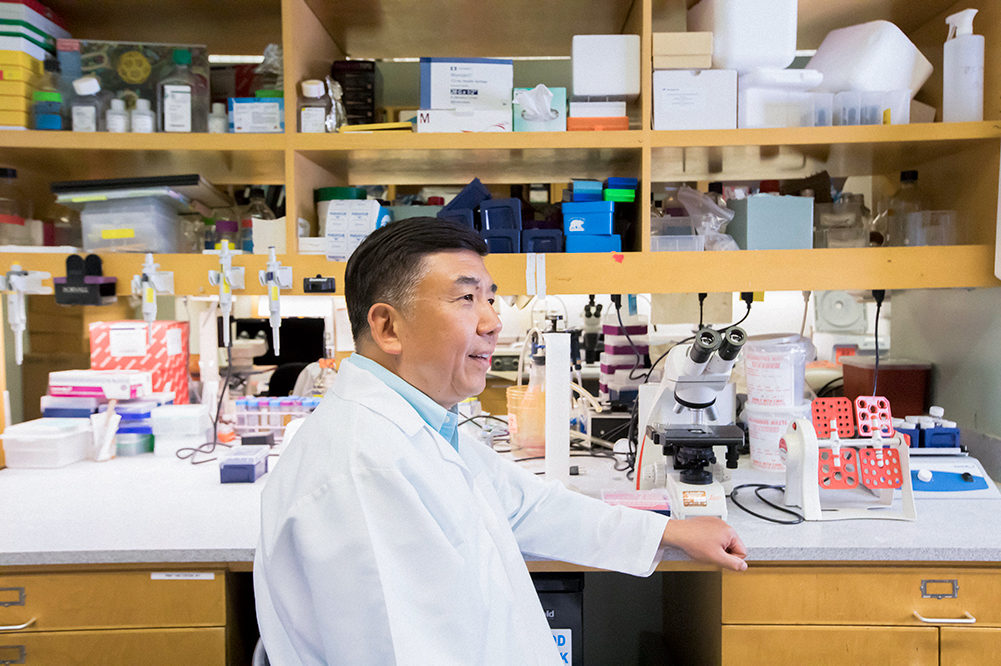Ostrow School of Dentistry Ranked First in NIDCR Funding Among Private Dental Schools

Posted
24 Jun 13
The Herman Ostrow School of Dentistry of USC received the most funds of any private dental school from the National Institute of Dental and Craniofacial Research in 2012, according to rankings released by the NIDCR June 19.
Ranked eighth overall among all public and private dental institutions, the Ostrow School of Dentistry received more than $7.7 million in grants from the NIDCR last year.
Yang Chai, associate dean of research for the Ostrow School, attributed the school’s continued strong funding to diligence in seeking out every opportunity to support Ostrow research and the people behind it. This approach has allowed Ostrow to maintain a high level of funding success even in an incredibly competitive environment, he said.
“Every time [the National Institutes of Health] publishes any funding opportunities, we make sure our faculty members receive that information, and we facilitate any grant submissions that are possible,” Chai said. “Our advancement in the NIDCR funding rankings is really a step-by-step gradual effort; it’s the collective effort of all these grants that make us stand out.”
The ranking for 2012 funding is Ostrow’s highest placement. During 2011, the school placed fourth among private dental schools and 14th overall.
Chai said Ostrow has done exceptionally well not only in submitting for new research grants but also in landing competitive grant renewals, funding pilot projects to gather preliminary data for future initiatives, receiving grant support for graduate students and postdoctoral fellows, supporting the recruitment and career development of faculty at all levels, and working with USC and external colleagues on collaborative grants.
“This is a reflection of the strong research program we have at our school, and it also validates what we have been doing: focusing on high quality publications and high quality science,” Chai said. “It’s quite clear that you can keep improving, even in this tough funding environment.”